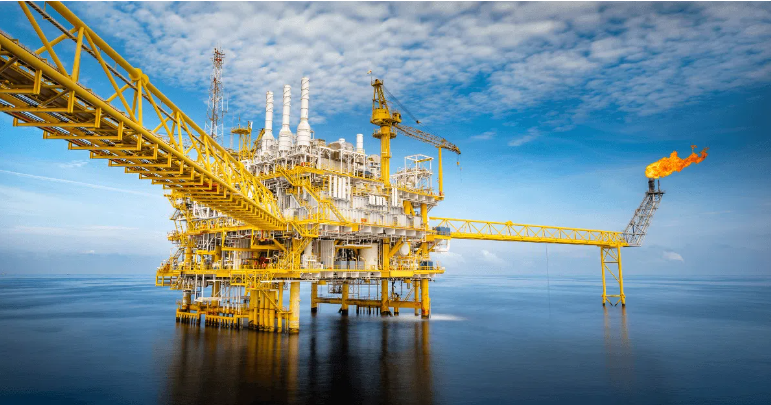BP, the UK-based energy giant, has temporarily stopped production at its Shah Deniz Alfa (SDA) platform in the Caspian Sea after a technical issue was found in a subsea pipeline used to transport gas condensate between the platform and the Sangachal terminal.
This has also led to Azerbaijan cutting off gas supplies to both Serbia and Bulgaria.
Azerbaijan’s decision to halt gas deliveries to both countries is linked to the technical problem at BP’s platform. The Shah Deniz field, one of the world’s largest gas-condensate fields, is where BP made its largest-ever gas discovery.
On January 10, 2025, BP’s affiliate in Azerbaijan confirmed that operations at the SDA platform had been suspended due to the pipeline issue.
The company assured that the platform, its personnel, and the associated facilities were completely safe and that no environmental damage had occurred.
BP stated that it was working to resolve the problem and resume normal operations “as quickly as possible.”
However, the problem at the SDA platform has affected gas deliveries to Serbia, with Azerbaijan confirming to Serbia’s government that daily gas deliveries of 1.7 million cubic meters were suspended because of technical issues.
Serbia’s President, Aleksandar Vučić, addressed the suspension, confirming that Serbia had been informed about the cut in gas supplies.
He added that despite this issue, Serbia would use its own gas reserves to meet the country’s needs. Vučić expressed hope that gas supplies would be restored within a month or two.
The suspension of gas supplies comes amid rising tensions between Serbia and the U.S. due to sanctions against Serbia’s oil and gas company, Naftna Industrija Srbije (NIS). NIS is majority-owned by Russia’s Gazprom and Gazprom Neft.
The sanctions aim to target Russia’s energy sector, and while Serbia has a 29.8% stake in NIS, it faces pressure to stop doing business with Russia by March 12 to comply with U.S. demands.
Despite these tensions, President Vučić reassured citizens that there would be no gas shortages or economic disruptions in Serbia. He said that Serbia would protect its interests, balancing its relationships with both Moscow and Washington.
Azerbaijan also cut off gas supplies to Bulgaria on January 7, 2025, due to the same technical issue. However, unlike Serbia, Bulgaria has already reduced its dependence on Russian gas.
Since April 2022, Bulgaria has stopped receiving gas from Russia after refusing to pay for the supply through a ruble-based scheme proposed by President Vladimir Putin. Bulgaria currently receives over 1 billion cubic meters of gas annually from Azerbaijan.
During the suspension of gas supplies from Azerbaijan, Bulgaria secured replacement gas from Turkey’s Botas, ensuring that there were no additional costs incurred. The interruption did not impact the gas market in the region, according to Bulgaria’s state gas company, Bulgargaz.
The gas supply to Bulgaria was expected to resume by January 11, 2025. BP’s confirmation of the technical issue at the Shah Deniz platform raised concerns that the disruption to gas supply to both Serbia and Bulgaria could be linked, although official confirmation from BP or Azerbaijan is still pending.
BP assured stakeholders that although the Shah Deniz Alfa platform was temporarily offline, the Shah Deniz Bravo platform remained fully operational, ensuring the continuity of gas exports.
BP also confirmed that it was working on resolving the issue at the SDA platform and expected gas supplies to Serbia and Bulgaria to resume soon.


